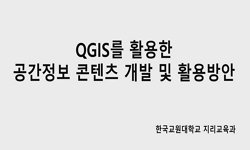대전시 쪽방밀집지역의 주거환경 문제점 및 주거환경이 주민들의 사회적 배제에 미치는 영향을 알아보기 위해 GIS(지리정보시스템)기반 커뮤니티매핑 및 주민 대상의 설문조사를 실시하였...
http://chineseinput.net/에서 pinyin(병음)방식으로 중국어를 변환할 수 있습니다.
변환된 중국어를 복사하여 사용하시면 됩니다.
- 中文 을 입력하시려면 zhongwen을 입력하시고 space를누르시면됩니다.
- 北京 을 입력하시려면 beijing을 입력하시고 space를 누르시면 됩니다.
대전시 쪽방밀집지역의 주거 및 지역공간이 지역주민들의 사회적 배제에 미치는 영향에 대한 GIS 활용 연구
한글로보기https://www.riss.kr/link?id=G3788744
- 저자
-
발행기관
-
-
발행연도
2017년
-
작성언어
Korean
- 주제어
-
자료형태
한국연구재단(NRF)
-
0
상세조회 -
0
다운로드
부가정보
국문 초록 (Abstract)
대전시 쪽방밀집지역의 주거환경 문제점 및 주거환경이 주민들의 사회적 배제에 미치는 영향을 알아보기 위해 GIS(지리정보시스템)기반 커뮤니티매핑 및 주민 대상의 설문조사를 실시하였다. 지역주민들의 지리정보 및 기타 속성을 지도화한 결과, 여성과 고령자가 중심지역에 밀집하는 현상이 나타났으며 2009년과 2016년의 자료비교를 통해 빈곤밀집지역이 다소 분산되는 경향을 살펴볼 수 있었다. 또한 이 지역의 실내외 모습을 담은 252장의 사진을 대상으로 의미단위별 유목화, 범주화 작업을 실시, 주거환경문제를 미관-위생, 협소-주택기능미비, 안전-사생활노출, 낙인의 4가지 범주로 분류하였다. 사진자료를 통한 커뮤니티매핑실시 결과 이 지역이 4곳의 구역으로 구분되며 주택형태, 주거형성의 역사, 비빈곤지역과의 접촉면, 폐쇄와 개방 등의 특징으로 주거문제가 달라진다는 점을 발견하였다. 또 주민대상 설문조사를 실시, 구역별로 일자리참가여부, 이웃만족도, 낙인, 사회적 배제에 의미있는 차이가 있음을 발견하였다. 마지막으로 회귀분석 결과, 주거만족도가 사회적 배제에 가장 큰 요인임이 드러났다. GIS기반의 본 연구를 통해 향후 이 지역에 대한 주거환경 개선에 있어서 구체적 접근과 문제별 대응이 이루어질 것을 제언하는 바이다.
다국어 초록 (Multilingual Abstract)
This study examines the effect of residential and neighboring environment on the residents’ social exclusion in Daejeon Chokbangchon, the city’s slum area. Based on GIS methodology with residents’ addresses and other characteristics, this study ...
This study examines the effect of residential and neighboring environment on the residents’ social exclusion in Daejeon Chokbangchon, the city’s slum area. Based on GIS methodology with residents’ addresses and other characteristics, this study finds out the feminization and the ageing trends in the central part of this area. Besides, longitudinal data between 2007 to 2016 shows this area’s depopulation resulting in people’s spread into other parts of the city. This study took pictures of 252 images of in the streets and indoors, analysed them and defined the problems of residential and neighboring environment. According to this picture analysis, the predicaments of this area was categorized into 4 types such as appearance-hygiene, narrowness-lack of residential functions, safety-privacy violation and stigma. This area ranging 1 km from north to south adjacent with Daejeon railway station was divided into 4 sections with different main problems. The follow-up survey for residents living in each section showed each section was different in work state, neighbor satisfaction, stigma and social exclusion. Finally, residential satisfaction was found to be the most important affecting factor on social exclusion. Based on these results, this study suggests government’s housing policy on










